KANDAHAR AIRFIELD, Afghanistan - Task Force Destiny's Aviation Life Support Equipment shop is continually making transformations to improve the safety and endurance of pilots and crew members.
ALSE enhances and sustains the security of aviation crew members and passengers by providing life saving equipment and individual protection. ALSE integrates comfort into items designed to provide Soldiers with an increased chance of survivability during an aviation emergency.
Upon arriving in theater, the ALSE shop supervisors consulted with crew members to find out what equipment they preferred and tracked down the highest quality products to meet their needs, said Sgt. Leonardo Fernandez, TF Destiny ALSE floor supervisor.
ALSE is steadily advancing the standards of aviation equipment for TF Destiny crew members and the Army.
"We are bringing in equipment for the first time in the Army," said Staff Sgt. Harry Lopez, TF Destiny ALSE noncommissioned officer in charge.
New products requested by ALSE must be rated and approved by the Air Warrior. Air Warrior is the Army's ALSE product manager whose mission is to provide crew member equipment system integration, lighter weight, increased survivability and a higher potential for improved mission performance at an overall reduced cost.
"We have a good working relation with them," said Chief Warrant Officer 2 Luke Kleckner, TF Destiny ALSE officer in charge. "They value our opinion."
The ALSE shop intends to relieve stress from the crew members' job by providing them with safe, functional and reliable equipment.
"We manage high volumes of equipment updates and changes to make the front and back seaters' job easier," said Kleckner. "When we give them what they want, it makes a world of difference."
Because crew members are constantly maneuvering in their gear, it is important for them to feel safe and comfortable.
The new helmet liners, helmet hear-through system and Primary Survival Gear Carrier used by the crew members of TF Destiny are all new and advanced products approved by Air Warrior for the U.S. Army, said Fernandez.
Improvements to the helmet increase comfort and functionality.
The helmet has built-in ear-muffs which deter noise from the ear, while the hear-through system allows crew members to flip a switch and hear outside noises, said Fernandez. Additionally, the PSGC is lighter and more flexible.
Not only is the ALSE shop contributing to the improved quality of crew members' equipment, but they are also improving the organization through better customer service and satisfaction.
Trained ALSE techs were requested from each TF Destiny battalion to support one of the first brigade- level ALSE shops in the Army's history, said Fernandez.
Normally the ALSE program is managed at a battalion or company level.
The ALSE techs have met certification requirements, said Fernandez. They all have aviation specific military occupation specialties and have completed a training course to learn how to inspect, maintain and repair ALSE gear.
They support every crew member within TF Destiny, to include the crew members at smaller forward operating bases where they provide techs for service.
The ALSE shop is responsible for keeping and maintaining an accurate record of all individuals' and aircraft life support equipment within the brigade, said Fernandez. However, the crew members are responsible for bringing their life support equipment to ALSE for service when necessary.
Each aircraft has an assigned Aircraft Modular Survival System, which contains equipment such as: chemical light sticks, food and water rations, a survival manual, parachute cord, bandages and blankets.
"AMSS kits have all sorts of survival gear," said Spc. Nick Smith, TF Destiny ALSE tech. "Your imagination is the limit. If you need to survive, you'll find exactly what you need to make it."
Crew members are also assigned individual life support equipment that consists of body armor, helmet and a PSGC, which is a vest and harness system worn over the body armor.
The PSGC has two survival pouches, one inserted on either side of the vest. One contains first-aid supplies together with medications, and the other stores signaling devices. Because medications expire and equipment gets damaged, these vital items must be inspected and kept up to date.
"It's important that crew members bring in their gear every 180 days so their gear can work at optimum efficiency at all times for their safety," said Smith.
First-aid kits are also mounted inside the aircraft for easy access in case of an emergency and must be maintained regularly to assure items are accounted for, in good condition and not expired.
"First-aid kits must be inspected annually," said Smith.
First-aid kits contain items such as: an eye patch, eye ointment, bandages, iodine, smelling salts, gloves, razor blades and water purification tabs.
"We supply the crew members with everything possible to save or sustain life," said Fernandez.
All of the equipment supplied and maintained by the ALSE shop is essential to the mission of TF Destiny. They provide comfort and confidence to the pilots and crew members flying in the unpredictable environment of Afghanistan.
"The ALSE shop is making the mission happen," said Lopez.
The ALSE shop is open 24 hours a day, providing crew members with immediate support to carry on their mission. No matter what time of day, they are available to make adjustments and improvements to the equipment which keeps the pilots and crew chiefs of TF Destiny safely flying.
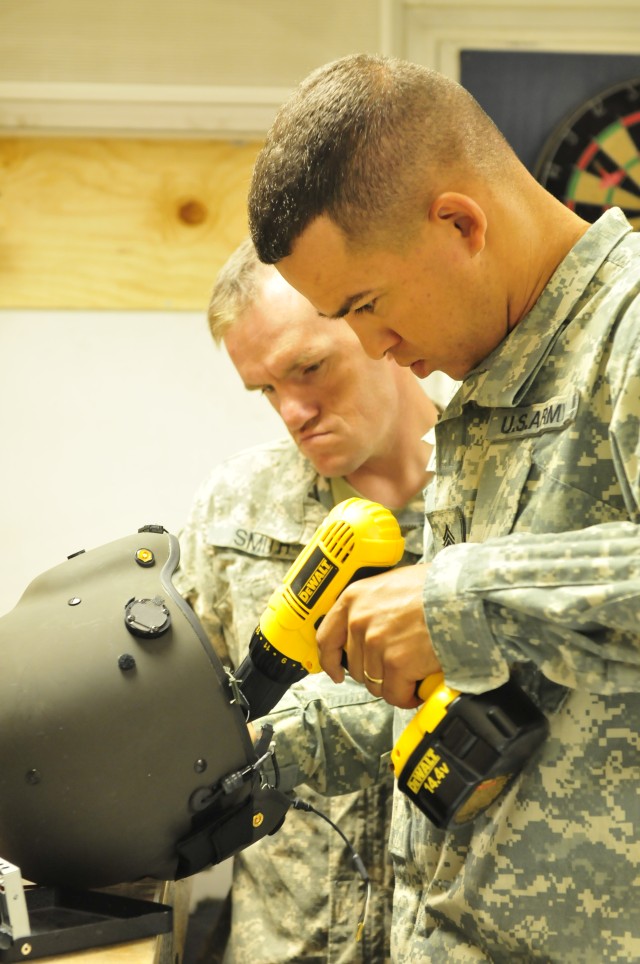
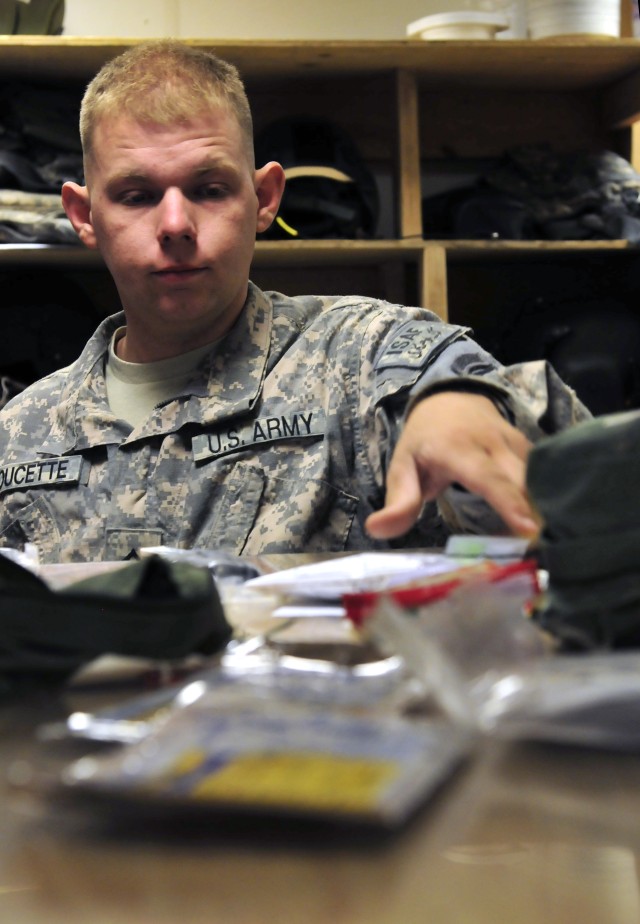
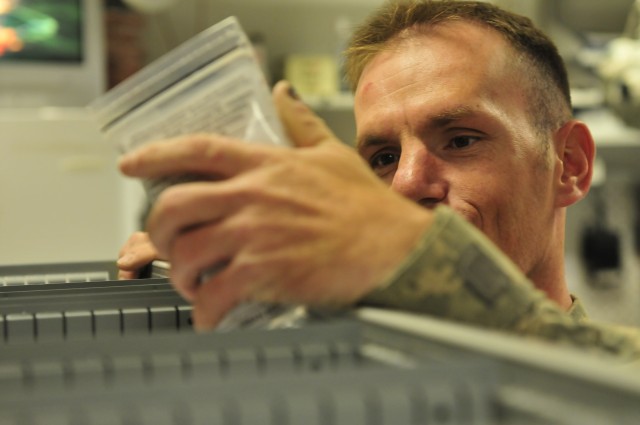
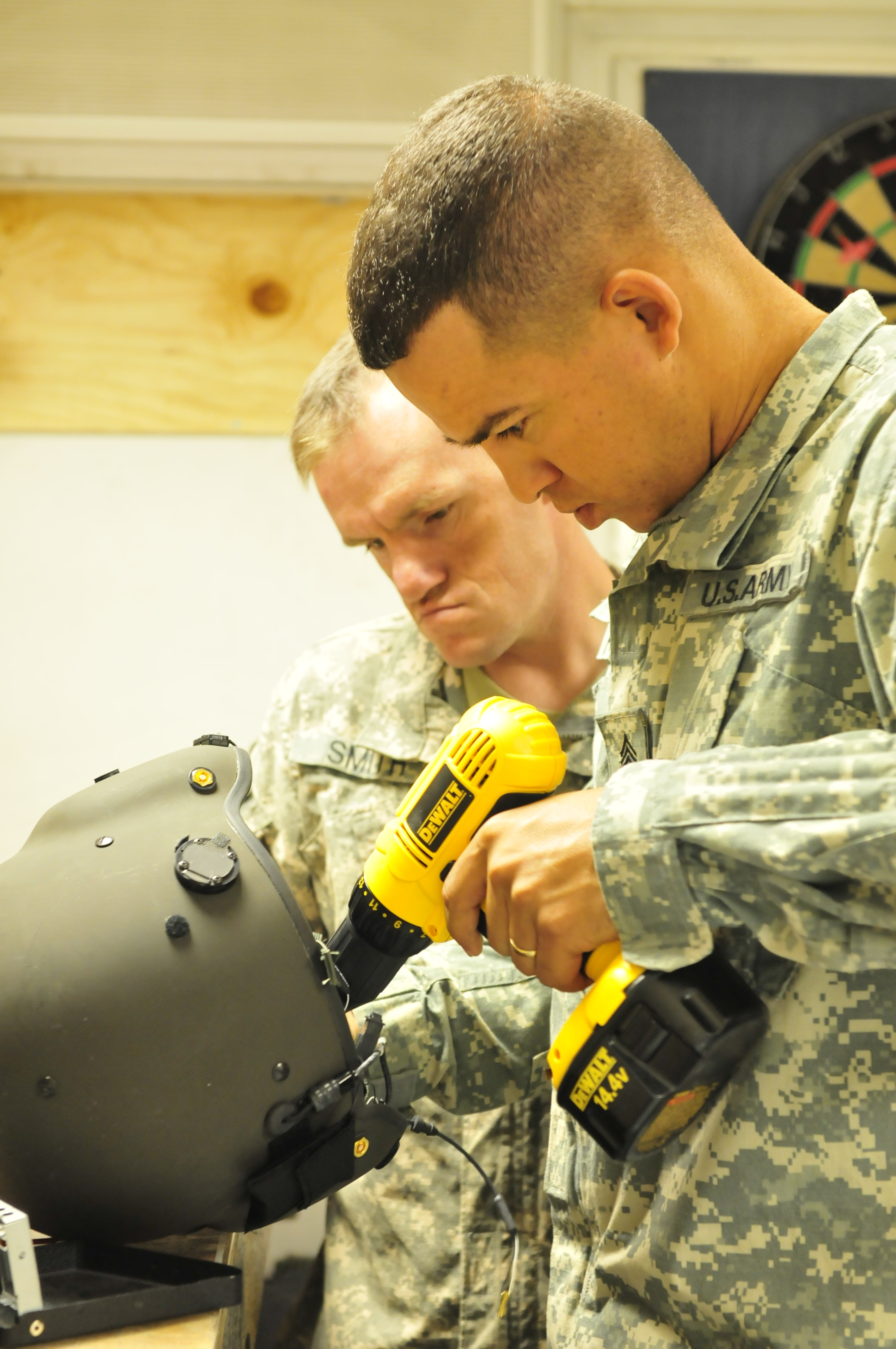
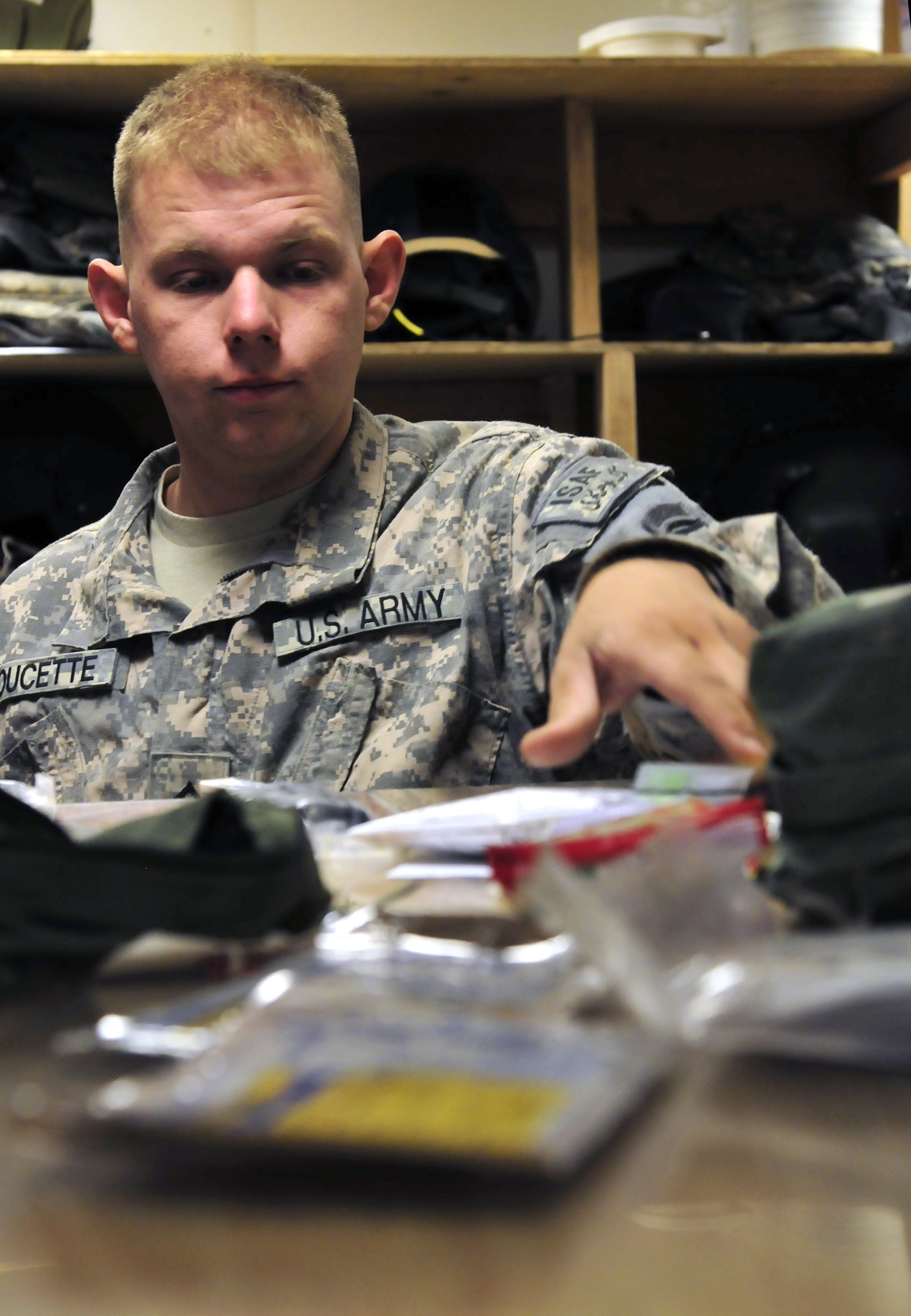
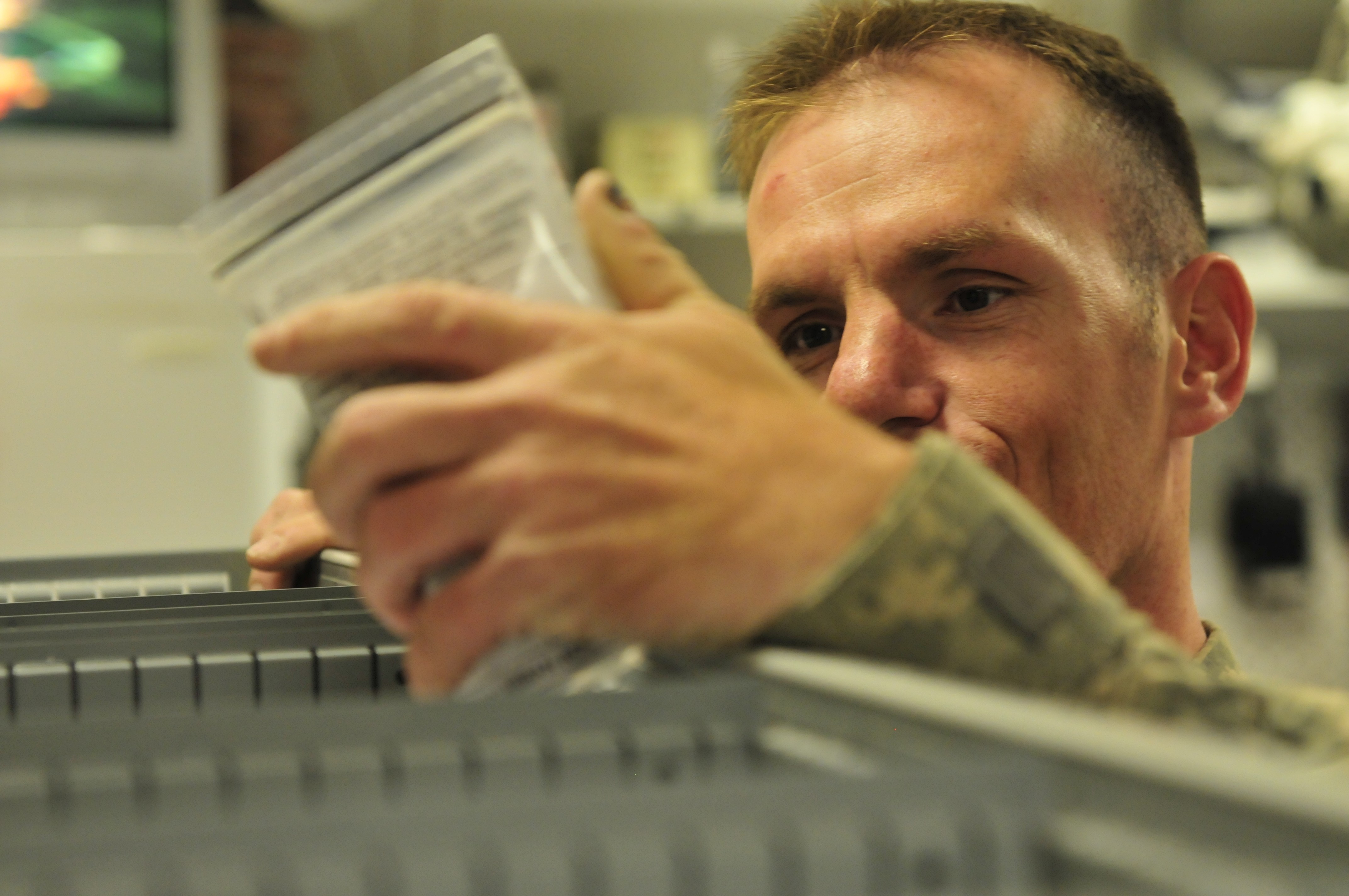
Social Sharing